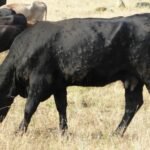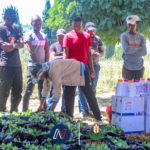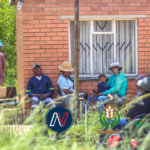With fewer than twenty wine brands currently produced or packaged in Lesotho, the country’s wine industry is still young. Yet, step by step, it is steadily growing.
Each launch adds another layer to this emerging sector and the latest, Mphatlalatsane Wine, was unveiled on 25 May 2025 by Mokhabebe (Pty) Ltd, adding an elegant new brand that seeks to reflect the culture and identity of Basotho.
“Mphatlalatsane,” translated as the Morning Star, was created in celebration of 200 years of the Basotho nation.
Founder Mpho Letima explained that the name was inspired by mokhabebe, a wildflower native to Lesotho.
The brand debuted with four ranges: Sauvignon Blanc, Chenin Blanc, Cabernet Sauvignon, and Merlot.
Letima and her team describe Mphatlalatsane not only as wine but as an experience, a cultural and geographical representation of Lesotho.
“Beyond Mphatlalatsane as a wine, it re-establishes how we embrace our food systems in celebratory behaviours and in daily life,” she said.
She added, “A Mosotho bride, for example, aligns herself with the morning star when preparing breakfast, and as people, we celebrate good news with alcohol.”
Currently, Mokhabebe imports wine into Lesotho for packaging.
Brand manager Sebabatso Fokothi explains that this is a strategic move: “With this first line of production, we deliberately brought them from South Africa to penetrate the international market with a high standard of production and set the bar for ourselves.”
She indicated that the company’s long-term goal is to establish vineyards in Lesotho and develop a truly local taste.
“Cape Town is not different from Lesotho, so why are we not growing vineyards here?” Fokothi asks.
She revealed that through its schools investment programme, Mokhabebe is also promoting grape cultivation in schools and communities.
“One school has already requested grape trees and the company intends to purchase grapes from them in the future. Our programme has an educational awareness component, with students and community members learning together about farming,” she added.
The brand’s philosophy is simple: for every plant we ground, what role does it play in our food system?
Early Players in the Industry
Although the industry is still in its infancy, Lesotho already has more than ten wine brands. Among the earliest was Mashimi Wines, founded in 2015 by Sefatsa Khabo. His interest in winemaking began during a visit to the Eastern Cape in 2013 while he was still in college. “After being exposed to wine making, I knew I didn’t want to be hired elsewhere. I believed in the industry. Ten years in, I can confidently say the market in an open field for farmers, biochemists even entrepreneurs to participate in this industry,” he said.
Khabo invested about M30, 000 to start Mashimi Wines, including a vineyard. But the vineyard was destroyed due to unprotected fields, with animals and herders damaging the seedlings.
“We ran a loss in pursuit of a vineyard,” he recalls.
For years, Mashimi Wines has imported grapes and brewing them for its production. The company also introduced apple wine, which has been well received in the market since its early days.
“Mashimi currently produces Cabernet Sauvignon, Merlot, Shiraz, and Chenin Blanc.”
Khabo emphasises the need to establish a complete value chain for wine in Lesotho is the country ought to remotely make it. He is now reviving his vineyard project, this time with protection measures, and has partnered with a farmer in Mohale’s Hoek to grow grapes on his behalf.
Beyond his own brand, Mashimi also supplies other producers, including Kasi Farm House Wine, established in 2018 by brothers Leoma and Tsitso Monaheng.
Kasi Farm, a Pandemic Pivot
The Monaheng brothers started producing wine under their farming company in 2018, but it was during the COVID-19 pandemic that their sales surged. “That’s when we actually had the highest purchases,” they explained.
Currently producing around 3,000 bottles a year, the brothers see themselves as part of the middle of the supply chain, but remain confident about their identity.
“Our aim is to sell the culture of Lesotho through winery. We are a Lesotho that boasts local production of our wine.
They highlight the role of distributors in Maseru and the importance of wine festivals, which provide crucial exposure and sales opportunities.
Sani Wines: Linking Agriculture and Tourism
A more established vineyard that flourishes in agri-tourism belongs to Sani Wines, based in Ha Ntsi, Maseru. The vineyard traces its roots back to the Social Forestry Project launched in 2004 by the government in partnership with GIZ (Deutsche Gesellschaft für Internationale Zusammenarbeit). Officially founded in 2008, Sani Wines transitioned from orchard farming to vineyard production in 2017.
Founder Kananelo Thamae, who inherited knowledge from his father, a beneficiary of the Social Forestry Project, specialises in pomiculture, the cultivation of fruit trees and plants. This includes skills such as grafting, pruning, pest control, and irrigation, all aimed at improving fruit yield and quality.
“Our market is mostly tourism, and that has made vineyards like ours important players in agri-tourism,” Thamae said.
However, he noted that government funding models still do not support such ventures. Khabo of Mashimi Wines agrees, citing the cancellation of his contract under the Small Agricultural Development Project II (SADPII) after two years.
According to Chabana Mokuku of CAFI (Competitiveness and Financial Inclusion), the Horticulture Incubation and Training Centre currently supports apple farmers and one vineyard farmer, Sani Wines.
“All horticulture farmers are welcome, and vineyard farmers qualify for the programme,” Mokuku noted.
Producing on about one hectare, Sani Wines bottles around 7,000 wines per season, mainly Chenin Blanc (since 2007) and Pinotage (since 2014). But climate change is a growing challenge.
“In 2023, due to heavy rainfall and hailstorms during ripening season, we did not produce anything. We have been raising funds for shade nets to protect the vines from hail, but protecting them from rain still requires new strategies, including chemical use for disease management,” Thamae explained.
Despite setbacks, he remains committed to climate-smart solutions and mentoring new fruit farmers.
Challenges and Opportunities
Khabo believes vineyards can thrive in Lesotho.
“This is an untapped market. With modern agriculture and climate-smart practices, grape production can succeed here,” he said.
He stresses the importance of marketing and entrepreneurship, noting that in his ten years in the industry, consumer reception has been strong.
Thamae added that demand for local production remains high.
“Basotho buy and love our produce. Wine festivals have also opened up the market. We are even producing for clients in the Netherlands and Johannesburg,” he shared.
Lesotho’s high altitude, he notes, enhances the natural acidity of grapes, a trait that helps wine age well.
Thamae said their line of business are to a certain extend community-driven packaging efforts with a vision to attain fully developed vineyards and a growing value chain.
“Lesotho’s wine industry is gaining ground and it is an industry rooted in culture, resilience, and the vision of farmers and entrepreneurs determined to see it succeed. If the momentum continues, Lesotho’s wines may soon claim their place on the global stage, proudly homegrown and distinctly Basotho, carrying with them the culture,” he said.






